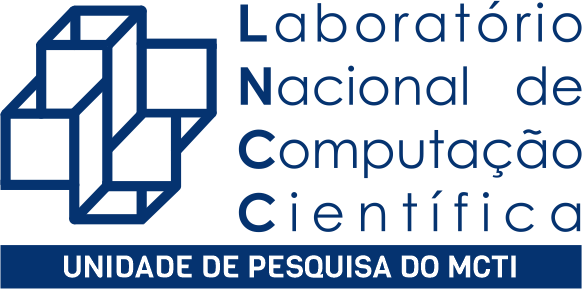EVENTO
Development and Analysis of Post-Processing Techniques for Multiscale Methods Applied to Elliptic Models
Tipo de evento: Defesa de Tese de Doutorado
The Multiscale Hybrid-Mixed (MHM) method is a multiscale finite element method based on a hybrid weak formulation, originally proposed for flow in porous media and later extended to linear elasticity. The MHM method decomposes the exact solution into global and local contributions. Upon discretization, this results in a global skeletal mixed formulation coupled with independent Neumann local subproblems, which can be solved using different numerical schemes. However, the linear system arising from the classical MHM formulation for the diffusion problem exhibits a symmetric matrix with a saddle-point structure, which may complicate its numerical solution. To overcome this limitation, we propose a reformulation of the MHM method that provides a new characterization of its exact solution, resulting in an elliptic variant, called e-MHM, that yields a system of symmetric positive definite (SPD) matrices. Regarding the local subproblems for the MHM method, a common choice is the Galerkin method on continuous polynomial spaces for the primal formulation of the local problems. Nevertheless, this approach yields approximate flux and stress fields that are not H(div; Ω)-conforming and, consequently, do not preserve local conservation properties. In this work, we address this issue by proposing and analyzing a new post-processing technique for the classical MHM method. The procedure is computed element-wise on submeshes and produces an approximate flux in H(div; Ω) and an approximate stress field in H(div; Ω), for two- and three-dimensional Darcy and linear elasticity models on polytopal meshes, considering both weakly and strongly enforced symmetry for the stress variable. We prove that both reconstructed variables, flux and stress, converge optimally in the L2(Ω)- and H(div; Ω)-norms while ensuring local conservation. Furthermore, we show that the local divergence projection also achieves optimal convergence in the L2(Ω)-norm with respect to the local mesh size. As a by-product of the flux reconstruction technique, we also present and analyze a fully computable a posteriori error estimator. The theoretical results are validated experimentally through numerical simulations.Evento HíbridoLocal: Auditório ALink de Transmissão: meet.google.com/xko-xvhq-vdu
Data Início: 15/12/2025 Hora: 13:00 Data Fim: 15/12/2025 Hora: 16:00
Local: LNCC - Laboratório Nacional de Computação Ciêntifica - Auditorio A
Aluno: Larissa de Souza Martins - - LNCC
Orientador: Frédéric Gerard Christian Valentin - Laboratório Nacional de Computação Científica - LNCC Weslley da Silva Pereira - - LNCC
Participante Banca Examinadora: Alexandre Loureiro Madureira - Laboratório Nacional de Computação Científica - LNCC Frédéric Gerard Christian Valentin - Laboratório Nacional de Computação Científica - LNCC Gabriel R. Barrenechea - Dept. of Mathematics and Statistics - Henrique Versieux - Instituto de Matemática Pura e Aplicada - IMPA Maicon Ribeiro Correa - Universidade Estadual de Campinas - UNICAMP Marcio Arab Murad - Laboratório Nacional de Computação Científica - LNCC
Suplente Banca Examinadora: Antônio Tadeu Azevedo Gomes - Laboratório Nacional de Computação Científica - LNCC


